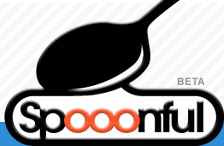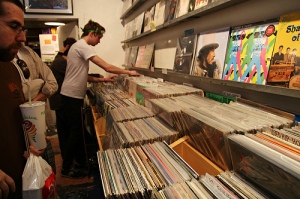Twitter is not just for tech geek bloggers anymore. (Yes, that was a Scobleizer shout out.) Oh no, my friends. Twitter is for everyone. Especially DIY musicians.
Before you read the rest of this post, open another tab and listen to “You’re no one if you’re not on Twitter” in the background. It’s in the little music player at the top of this page. Just a little soundtrack for ya.
And, while you’re distracted, go ahead and follow evolvingmusic on Twitter.
Now, not everyone agrees with the merits of twittering as a part of an overall marketing strategy for musicians. I, however, would not only include Twitter in my strategy, I would make it one of the main features.
I know, Twitter can be mildly reminiscent of a 90s chat room sometimes. (I never really understood the appeal there). But instead of creepy old men posing as teenage girls and lonely housewives looking for excitement, it’s an entirely different crowd. Twitter is full of intelligent, resourceful, witty people who are passionate about new technology, endlessly curious about a wide range of topics, and more than happy to share helpful information. Twitter has become a great resource for all kinds of things, and perhaps surprisingly, for as-it-happens news as well.
But it seems to me that not very many musicians are taking advantage of this brilliantly simple tool. Yet.
As most of us know by now, the music industry has dug itself into a deeper hole than it can get itself out of for the time being and musicians are pretty much on their own when it comes to creating their own success. Obviously, you need a MySpace Music page. (I hate MySpace. I really do. But it IS necessary for musicians.) Obviously, you need a website, where you post your photos, tour dates, bio, etc. The next steps are also important: your blog (let your fans get to know you), your Facebook page, a Last.fm account, a YouTube channel for your music videos. These are all part of a multi-pronged approach to creating your musical identity online. Let your fans find you in the places where they are already spending their time. Give them the content they are already looking for.
Ok, so if I do all this, do I still need Twitter? Who cares what I had for lunch? Isn’t it a waste of my time??
Absolutely not! And here’s why.
First, it’s another way to broadcast the key things that you already have on your MySpace, Facebook, website etc, like tour dates, album release dates, and what not.
Second, and more importantly, it’s a way – similar to blogging – to get more personal. To let your fans get to know you, the person, in addition to you, the musician. Whereas blogging allows you to rant and rave and express your opinions in a very personal way, Twittering (which is technically microblogging), allows for the same thing. Just, you know….in 140 characters or less.
Those who follow you (presumably your fans) are interested in what you have to say, what you are doing, what you are feeling and thinking. They care. Whether you tweet about what city you’re in for your tour tomorrow or how much you hate the president today or what color underwear you have on, they care. (And if they decide they don’t care, they’ll just unfollow you.)
Say important things, say meaningless things, say witty things, ask questions. It’s all relevant if it’s on your mind.
Next, as a way of rewarding your loyal followers, give them stuff. Much like Obama sent his VIP pick out by text message first, you could announce a small show or party only on Twitter, or include a link to a free download in a tweet so your followers get it first.
Lastly, it’s a way to interact with your fans. Ask them for suggestions, like song requests for a set list at an upcoming show. Ask them which songs they like best on your last CD. Let them show their adulation with their @ replies.
One mistake to avoid: Don’t let someone else produce your Twitter content for you. Letting a PR manager or college intern or your unemployed roommate write your updates for you will defeat the purpose. Only you can mold your online identity and make it actually you.
Another tip: Share music with your fans on Twitter! You can do this by using Tra.kz, which will shorten your long audio links into cute, little links that point fans to a player page for the song; the song’s Tra.kz page displays all the tweets about the song and makes it easy for people to share.
Which artists are currently on Twitter? Only a few have caught on so far. Here is a sampling: Snoop Dogg, MC Hammer, Jimmy Eat World, Sara Bareilles, Bjork, Brett Gurewitz (of Bad Religion), A Fine Frenzy, and Patrick Wilson (of Weezer).





